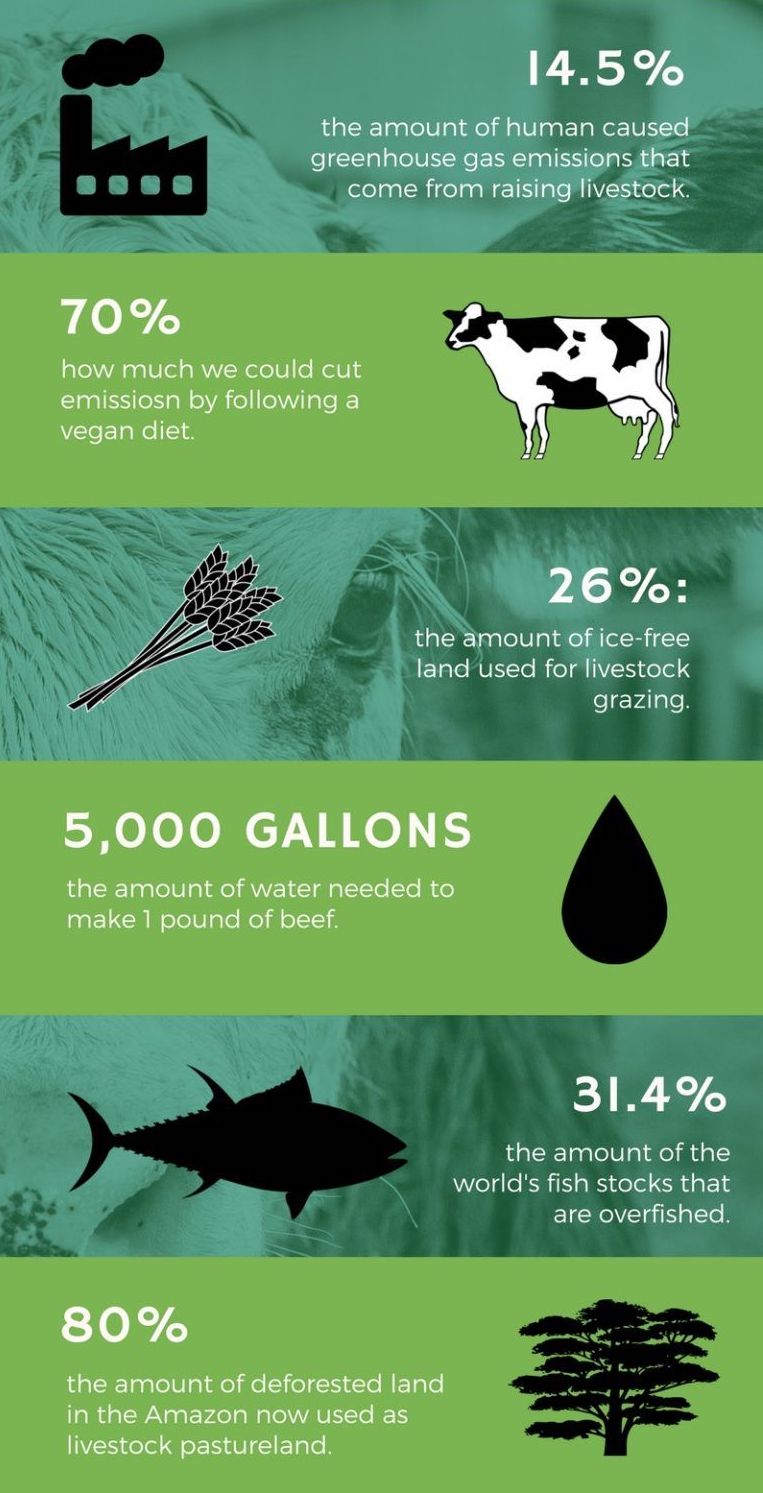Ecotopian Tools for the Academy: "Meatless Mondays in Penn’s Dining Halls"
March 27, 2024
Welcome to the second installment in our series of student proposed “Ecotopian Tools for the Academy!”
Several students were interested in potential tools regarding our relationship with food— exploring its production, sourcing, consumption, and cultural perceptions. The final two articles will delve into this important theme. The first of these, proposed by Margaret Tolkach will focus on the substantial climate impacts of a seemingly minor dietary adjustment: reducing meat consumption.
Curious to read more? To start from the beginning of the series, check out “Environmental Injustice and the Philadelphia School District” Course.
Proposed by Margaret Tolkach
Implementing a menu each Monday in Penn’s dining halls consisting solely of plant-based options will reduce the university’s embodied greenhouse gas emissions and provide sustainable opportunities for students to engage with and learn from. Currently, the University of Pennsylvania has six dining halls on campus, which already have the equipment and ingredients to participate in a “Meatless Monday” menu offering. Therefore, implementing this ecotopian tool would only require changes to be made when placing orders to the food suppliers to ensure specific plant-based foods are selected and delivered for Mondays. Since there are multiple dining options on campus, this tool can begin its implementation at one dining hall location to gauge community perceptions before integrating it into all six dining halls.
Students, faculty, and visitors will all engage with this tool by going to the dining halls and exploring the unique culinary offerings on “Meatless Monday,” as well as viewing the informational graphics displayed throughout the space explaining the environmental benefits of reducing meat consumption. In addition to informational graphics, Penn can host events on Mondays such as screenings of documentaries exploring plant-based diets and the negative impacts from the meat and dairy industries, such as Cowspiracy and What the Health. Ideally, this ecotopian tool will educate Penn’s community on how to adopt this dietary choice into their lifestyles for a reduced environmental footprint, while simultaneously mobilizing conversations about the negative externalities that the meat and dairy industry are responsible for.
”Meatless Mondays” will reduce the university’s negative environmental impact since plant-based diets can reduce water consumption by about 50% and greenhouse gas emissions by 75%. Increasing fruit and vegetable intake through a plant-based diet has many health benefits as well, specifically lowering blood pressure, reducing the risk of heart disease, and can ease certain digestive problems in individuals. Additionally, focusing on fresh produce that is locally sourced and organically cultivated is another crucial factor to ensure a healthier option and to improve the quality of resources available for Penn’s community.
Overall, this tool would require planning ahead 3-6 months to curate plant-based meals suitable for Penn’s dining halls as well as placing orders for their food suppliers to deliver these specific goods each Monday. Having this span of 3-6 months prior to implementing allows Penn to publicize the tool to its community, illustrating its benefits, and why this shift is supporting a more sustainable future for our university.

Infographics in the dining hall could help support student engagement with and understanding of "Meatless Mondays" in the dining hall.
About the Author
Margaret Tolkach is a candidate for the University of Pennsylvania's Master of Environmental Studies degree. She is interested in how individuals can implement sustainable practices into their personal lives. Her proposal highlights the environmental degradation that the agricultural industry is responsible for and how limiting one's intake of meat products through a campus-wide program can reduce individual's and Penn's overall environmental footprint.
Sources
Image: https://ladyfreethinker.org/plant-based-diet-fights-climate-change/
